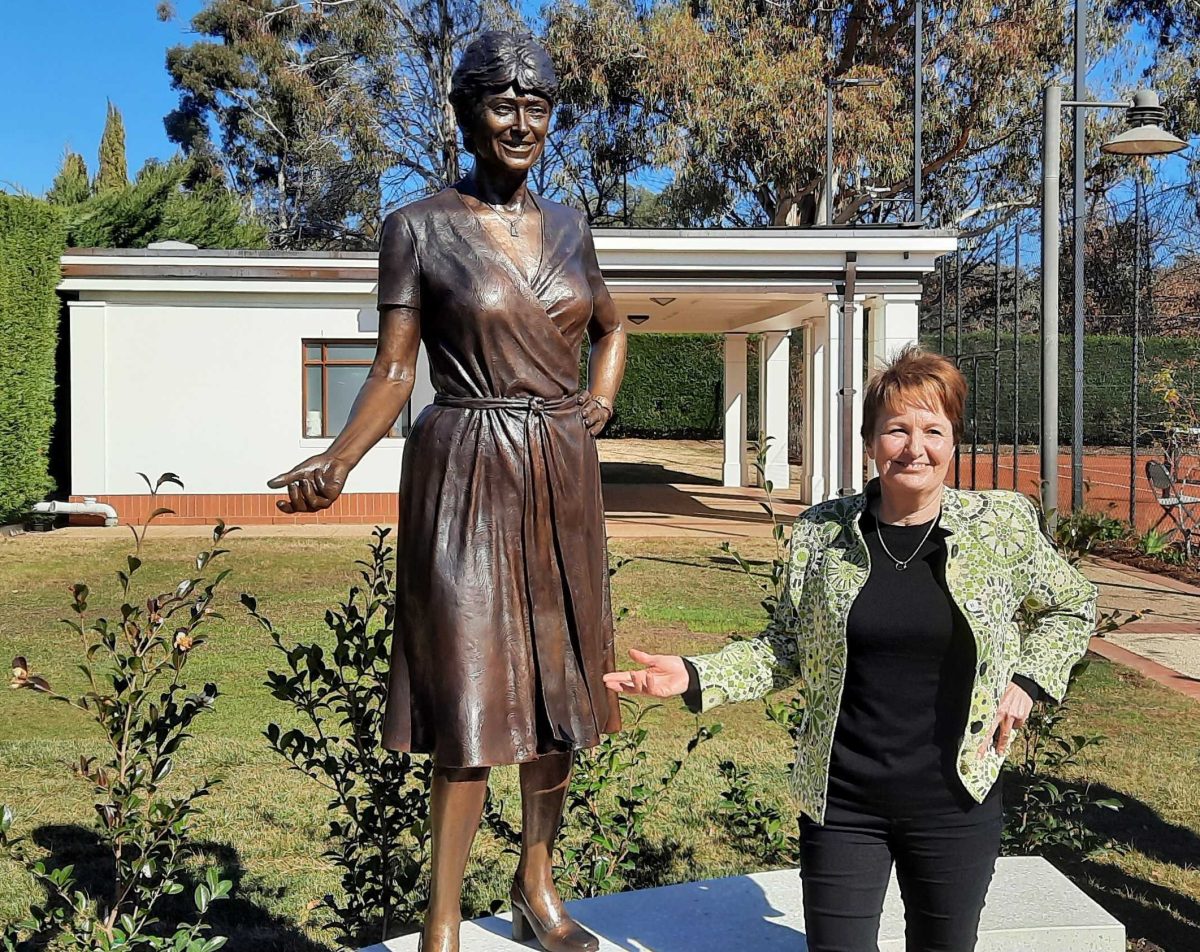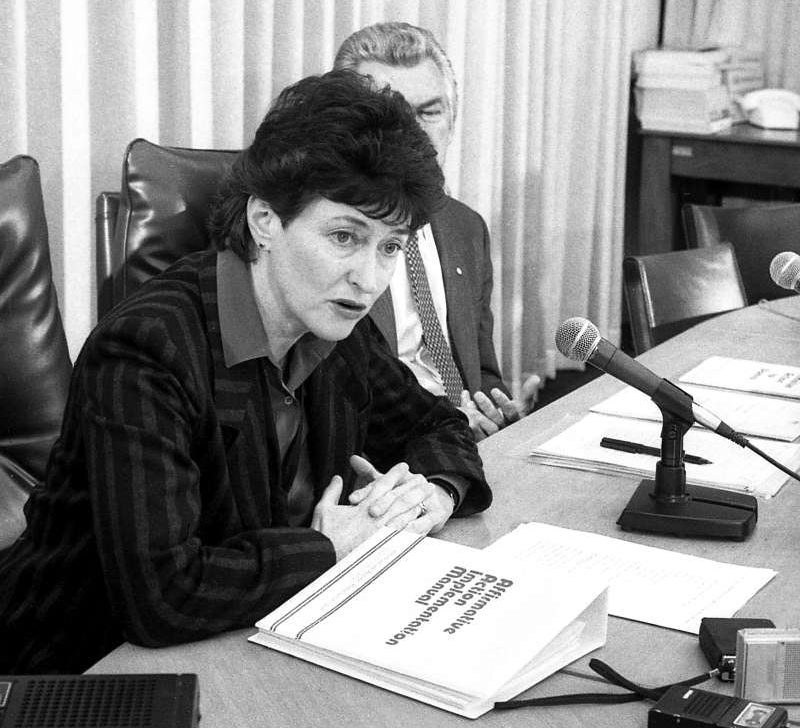
Sculptor Lis Johnson with her bronze statue of Susan Ryan: “a pleasure from start to finish”. Photo: Ian Bushnell.
For sculptor Lis Johnson, her bronze depiction of trailblazing Labor politician Susan Ryan captures her determination on one hand and openness on the other.
Describing it as one of the most fulfilling commissions of her 30-year career, Ms Johnson said Susan was a person she grew to like and admire the more she learned about her and instilled that knowledge in her work.
“She was very true to her values and very determined to do the work and get the best results, but not in a bullying, hardheaded way, in a very open conciliatory sort of way,” she said after Thursday’s unveiling of the work at the entrance to the Senate Rose Garden at Old Parliament House on the 40th anniversary of the Sex Discrimination Act.
Ms Johnson said the work was a pleasure from start to finish, particularly in depicting a woman.
“I’ve sculpted a lot of men, so it’s nice to try to redress the balance,” she said.
Titled Senator Ryan Addresses the Rally, the sculpture is inspired by a photo of Susan addressing a women’s work rally in 1977.
It has been positioned in the gardens so people can gather in front of the work or interact with it and sit on the garden bed beside it.
Daughter Justine Butler said the location was perfect, next to her place of work but where her mother and children spent many enjoyable times.
“I really hope that the rose gardens will be filled again with children who will walk past this and ask, ‘Who was that woman? What did she achieve? And what was her life like as a pretty young woman in Parliament?
“I really hope that this statue will provoke many questions about Susan Ryan and, more generally, about the place of women in Australian politics.”

Susan Ryan (with former prime minister Bob Hawke) was a pivotal figure for women’s rights and in Australian politics. Photo: Museum of Australian Democracy.
The sculpture was funded by the ACT Government as part of the Recognising Significant Women Through Public Art program, initiated to begin to address the imbalance in gender representation in the ACT Public Art Collection.
Arts Minister Tara Cheyne said Ms Ryan was an inspirational woman and politician who believed that “legislative power was the most direct tool for change”.
“This place is fitting not just as the site of so many firsts for the feminist movement and for women’s rights, but for so many moments in her pivotal career and her decision-making, and being right near her office window,” she said.
Ms Cheyne paid tribute to her determined work on the landmark Sex Discrimination Act, quoting from page 17 of the Canberra Times to illustrate just how far Australian society had come and the importance of that legislation:
People at work can now hit back at crude comments, bottom slapping and other forms of sexual harassment, which can undermine their ability and make their life a misery following the introduction today of the new Sex Discrimination Act.
“I wish that was satire, but that’s a direct quote,” Ms Cheyne said. “I think this one sentence shows how monumental securing such basic rights was.”
Former governor-general Dame Quentin Bryce told the unveiling ceremony that Susan would have loved this occasion.
“How much it would mean to her, this place, our Parliament, the heart of our democracy, this much-loved rose garden where she played with her little ones, where she came to reflect, for moments of respite, for quietness, for going inside herself,” she said.
Dame Quentin said the sculpture captured the essence of her old friend.
“I can feel the vitality, the energy, the spirit, those qualities – that temperament, impatient, passionate, pragmatic – that made her our heroine,” she said.
“I want to congratulate all involved in this brilliant creative remembrance that will ensure that Susan’s legacy endures, a legacy that signifies the finest human values of courage and kindness and the solidarity of sisterhood.”
Susan Ryan AO (1942-2020) was a Senator from 1975 until 1988.
In 1975 she became the first female Senator for the ACT, in 1977 she was the first woman in Labor’s shadow cabinet, and in 1983 was the first woman in a federal Labor Cabinet.
One of her many achievements was the introduction and passage of world-leading legislation to prevent discrimination based on sex, marital status, or pregnancy, to guard against harassment and to dismantle barriers in the workplace.














